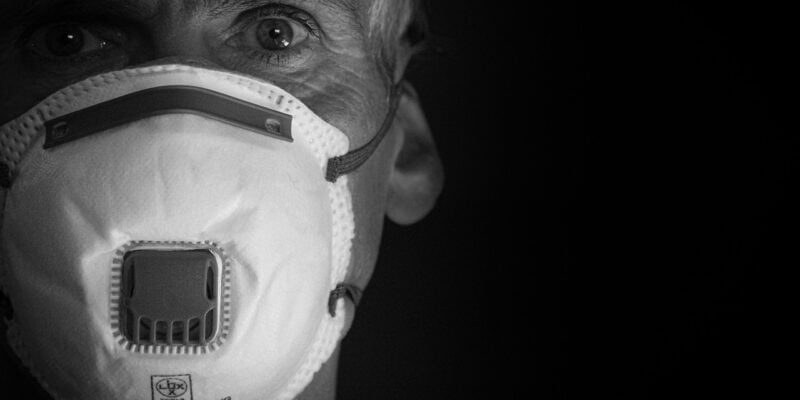
Exploring the Depths of Mental Disorders: A Must-Watch List of Documentaries
Mental health is a crucial aspect of overall well-being, yet it is often overlooked or stigmatized in society. Documentaries have the power to educate, raise awareness, and reduce stigma surrounding mental health disorders. These films provide valuable information about various mental health disorders, helping viewers understand the symptoms, causes, and challenges faced by those living with these conditions. By shedding light on these topics, mental health documentaries can promote empathy and inspire change.
Key Takeaways
- Mental health documentaries are important for educating and raising awareness about mental health disorders.
- Documentaries can offer insight and hope for those struggling with mental health disorders, as well as their loved ones.
- “Out of the Shadows” is a powerful documentary that sheds light on schizophrenia and the challenges faced by those living with the disorder.
- Documentaries on anxiety, depression, and other common disorders can help reduce stigma and encourage people to seek help.
- Documentaries on addiction and substance abuse can explore the complexities of these issues and inspire change.
Understanding Mental Health Disorders: Documentaries That Educate
One of the primary benefits of mental health documentaries is their ability to educate viewers about different mental health disorders. These films provide valuable information about the symptoms, causes, and treatments of various conditions. For individuals who may not have personal experience with mental health disorders, documentaries can offer a window into the lives of those who do.
By understanding the complexities of mental health disorders, viewers can develop a greater sense of empathy and compassion for those living with these conditions. This increased understanding can help reduce stigma and discrimination surrounding mental health, creating a more inclusive and supportive society.
Schizophrenia: Out of the Shadows Documentary
“Out of the Shadows” is a documentary that explores the experiences of people living with schizophrenia. This film provides an in-depth look at the challenges faced by individuals with schizophrenia and their families. It highlights the impact of stigma on their lives and the importance of early intervention and support.
By sharing personal stories and experiences, “Out of the Shadows” humanizes schizophrenia and challenges misconceptions about the disorder. It offers hope for recovery and emphasizes the importance of providing appropriate care and support for individuals living with schizophrenia.
Anxiety and Depression: Documentaries That Shed Light on Common Disorders
| Documentary Title | Director | Release Year | Runtime | IMDb Rating |
|---|---|---|---|---|
| My Depression | Elizabeth Swados | 2014 | 1h 15min | 6.6 |
| The Secret Life of the Manic Depressive | Ross Wilson | 2006 | 2h | 8.2 |
| It’s Kind of a Funny Story | Anna Boden, Ryan Fleck | 2010 | 1h 41min | 7.1 |
| Depression: Out of the Shadows | Larkin McPhee | 2008 | 1h | 7.6 |
| The Bridge | Eric Steel | 2006 | 1h 35min | 7.3 |
Anxiety and depression are two of the most common mental health disorders, affecting millions of people worldwide. Documentaries like “The Secret Life of Chaos” and “Depression: Out of the Shadows” offer insight into these disorders, exploring their causes, symptoms, and treatment options.
These films provide a platform for individuals to share their personal experiences with anxiety and depression, helping viewers understand the impact these disorders can have on a person’s life. By shedding light on these common mental health conditions, these documentaries contribute to reducing stigma and promoting empathy for those living with anxiety and depression.
Eating Disorders: Documentaries That Offer Insight and Hope
Eating disorders are often misunderstood and stigmatized in society. Documentaries like “Thin” and “Someday Melissa” offer personal stories and hope for recovery. These films provide an intimate look at the struggles faced by individuals with eating disorders, highlighting the complexities of these conditions.
By sharing personal stories of recovery and resilience, these documentaries challenge misconceptions about eating disorders and offer hope for those who may be struggling. They also emphasize the importance of early intervention and support in the treatment of eating disorders.
Bipolar Disorder: Documentaries That Showcase Personal Stories

Bipolar disorder is a complex mental health disorder characterized by extreme mood swings. Documentaries like “Up/Down” and “Of Two Minds” showcase personal stories and experiences with bipolar disorder. These films provide an intimate look at the challenges faced by individuals with bipolar disorder, as well as the impact on their families and loved ones.
By sharing personal stories, these documentaries humanize bipolar disorder and challenge misconceptions about the condition. They also highlight the importance of proper diagnosis, treatment, and support for individuals living with bipolar disorder.
Post-Traumatic Stress Disorder: Documentaries That Highlight the Effects of Trauma
Post-traumatic stress disorder (PTSD) can affect anyone who has experienced trauma. Documentaries like “Wartorn” and “Thank You for Your Service” highlight the effects of PTSD on veterans and their families. These films provide an in-depth look at the challenges faced by individuals with PTSD and the importance of access to appropriate care and support.
By sharing personal stories of veterans and their families, these documentaries raise awareness about the impact of trauma and the need for effective treatment options. They also contribute to reducing stigma surrounding PTSD and promoting empathy for those living with this condition.
Addiction: Documentaries That Explore the Complexities of Substance Abuse
Addiction is a complex mental health disorder that affects millions of people worldwide. Documentaries like “The Anonymous People” and “Heroin(e)” explore the complexities of substance abuse and addiction. These films provide an intimate look at the challenges faced by individuals struggling with addiction, as well as the impact on their families and communities.
By shedding light on the complexities of addiction, these documentaries challenge misconceptions and stereotypes surrounding substance abuse. They also emphasize the importance of access to effective treatment options and support for individuals living with addiction.
Stigma and Mental Health: Documentaries That Challenge Misconceptions
Stigma surrounding mental health disorders can prevent people from seeking help and support. Documentaries like “This Is My Brave” and “The S Word” challenge misconceptions and reduce stigma surrounding mental health disorders. These films provide a platform for individuals to share their personal stories of living with mental health conditions, highlighting the resilience and strength of those who have overcome challenges.
By sharing personal stories, these documentaries humanize mental health disorders and promote empathy for those living with these conditions. They also contribute to reducing stigma and discrimination, creating a more inclusive and supportive society.
The Power of Mental Health Documentaries to Inspire Change
Mental health documentaries have the power to educate, raise awareness, and reduce stigma surrounding mental health disorders. By sharing personal stories and experiences, these films can inspire change and promote empathy for those living with mental health conditions.
Through increased understanding and awareness, mental health documentaries can contribute to creating a more inclusive and supportive society. They can also encourage individuals to seek help and support for their own mental health, reducing the barriers that prevent people from accessing the care they need.
In conclusion, mental health documentaries play a crucial role in educating, raising awareness, and reducing stigma surrounding mental health disorders. By shedding light on these conditions and sharing personal stories, these films have the power to inspire change and promote empathy for those living with mental health conditions. It is important to continue supporting and promoting mental health documentaries to create a more inclusive and supportive society for all.
If you’re fascinated by documentaries that shed light on mental disorders, you won’t want to miss out on “Wave Magnets.” This thought-provoking website offers a wide range of articles that delve into the complexities of mental health. One particularly compelling piece is their exploration of the impact of documentaries on raising awareness and reducing stigma surrounding mental disorders. To gain valuable insights and expand your understanding, check out their article here.
FAQs
What are documentaries about mental disorders?
Documentaries about mental disorders are films that explore various mental health conditions, their symptoms, causes, and treatments. These documentaries aim to raise awareness about mental health issues and reduce the stigma surrounding mental illness.
What are some examples of documentaries about mental disorders?
Some examples of documentaries about mental disorders include “The S Word,” “The Devil and Daniel Johnston,” “Madness in the Fast Lane,” “The Bridge,” “The Secret Life of the Manic Depressive,” and “A Beautiful Mind.”
What is the purpose of documentaries about mental disorders?
The purpose of documentaries about mental disorders is to educate people about mental health issues, reduce the stigma surrounding mental illness, and promote understanding and empathy towards those who suffer from mental health conditions.
Who can benefit from watching documentaries about mental disorders?
Anyone can benefit from watching documentaries about mental disorders, including individuals who suffer from mental health conditions, their families and friends, mental health professionals, and the general public.
Are documentaries about mental disorders accurate?
Documentaries about mental disorders are typically well-researched and accurate, but it’s important to remember that they are still a form of media and may not provide a complete picture of mental health conditions. It’s always best to consult with a mental health professional for accurate information and advice.
Where can I find documentaries about mental disorders?
Documentaries about mental disorders can be found on streaming platforms such as Netflix, Hulu, and Amazon Prime, as well as on cable networks such as HBO and Showtime. They can also be found on DVD or Blu-ray and in some cases, on YouTube or Vimeo.


















